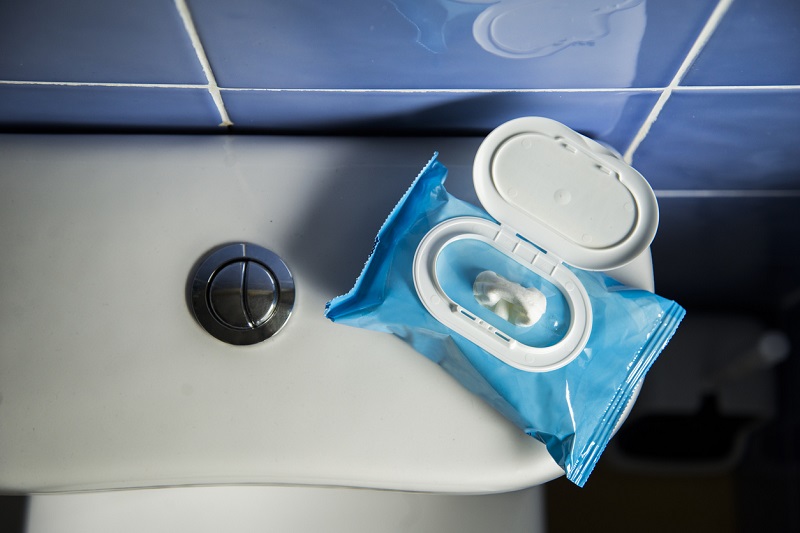Call This Wednesday to Get $25 OFF
Clean Solutions, Dirty Jobs – Done Right. Reliable. Responsive. Remarkable.
Call This Wednesday to Get $25 OFF
Clean Solutions, Dirty Jobs – Done Right. Reliable. Responsive. Remarkable.
With viruses and bacteria all around us, it can be tempting to want to use wet wipes to sanitize surfaces and our hands. To make it even more tempting, there are wipes marketed as “flushable.” How convenient is that? Well, we are here to tell you that you should not fall for such marketing techniques. In fact, this article brought to you by Septic Connection will go over “flushable” wipes and their effect on your septic system. We will first start with a quick summary of how your septic system is designed to work and then give you our thought on supposedly flushable wipes.

Eighty percent of homes in the United States are connected to a centralized sewer system that is managed and maintained by the municipality or local government. The remaining twenty percent of homeowners are left to deal with sewage maintenance on their own. These households generally opt for a septic tank installation. A septic system is an onsite sewage facility that handles wastewater from your household plumbing system. As waste and wastewater leave your household plumbing, they enter a septic tank housed with bacteria and chemicals that break down the solids into sludge while the liquid effluent is released into the drain field. The sludge is later pumped or cleaned out and the liquid effluent permeates through the soil in the drain field.
Homeowners are quickly discovering that it is one thing for something to be “flushable” and another for it to be “sewer and septic safe.” Sure, these supposedly flushable wipes might make it through the curved colon in your toilet and enter the drain line. However, what happens further down the line is left a lot to chance. Consider this small experiment if you want to see what we mean. Fill two buckets with water and drop regular toilet paper in one and a “flushable” wipe in the other. You will notice that the rate of degradation is drastically different between the two. Sure, both will eventually degrade but the issue is with the time it takes to break down. These wet wipes can get caught in your pipes and lead to clogs, potentially causing damage to your pipes.
Even if they reach your septic tank, you have another issue to deal with: prematurely filled septic tanks. The bacteria in your septic tank will have a tough time breaking down these wipes. There is also the risk of clogging the drain field.
The septic system is an onsite waste treatment facility, and it is incredibly reliable. However, the system is only as effective…
Imagine flushing your toilet and then suddenly realizing that your backyard has turned into a swampy mess. This unpleasant experience is…
Soil testing is a critical step in various construction and environmental projects. It provides essential information about the ground conditions, which…
Grease traps are remarkable tools that help keep your establishment clean and free from bad odors. Septic Connection has a…
If you have just moved into a new home or property that relies on a septic system for waste and wastewater…
We will not say that you should not use flushable wipes. However, be sure to dispose of them properly. Do NOT flush them. Instead, dispose of them in a sanitary way into a garbage bin. Flushing these wipes can end up giving you huge headaches as they clog the drain line and burden your septic system. We even advise against flushing multi-ply toilet paper if you have a septic system installation. Call Septic Connection if you have any questions or would like to schedule an appointment with one of our specialists.
When septic problems start, many homeowners look for quick and inexpensive solutions. Online videos, store-bought additives, and advice from well-meaning neighbors can make do-it-yourself septic fixes seem appealing. Unfortunately, septic…
Read moreA septic system is one of the most important—and most overlooked—components of a home. It manages wastewater quietly in the background, so many homeowners assume everything is fine until a…
Read more